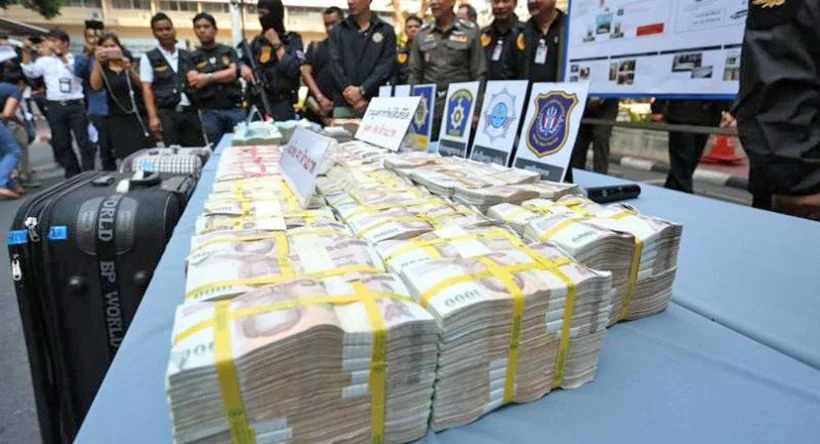
On January 2, 2023, Thai Prime Minister Prayut Chan-o-cha announced that Thailand and China will permanently waive visas for each other's citizens starting in March. The news quickly sparked a surge in search interest in the two countries. Searches for the keyword "Thailand" on a major OTA platform saw a 90% increase in real-time searches, while searches for flights from Shanghai and Beijing to Bangkok surged by more than 40%. Search interest for the keyword "China" on the same platform's Thailand site also increased by more than 80% from the previous month, with the highest search interest in Guangzhou, Shanghai, Beijing, and Kunming. Many netizens have said that they have added Thailand to their travel plans for holidays such as Labor Day and National Day this year.
A visa waiver is an agreement between two or more countries or territories that allows citizens of one country to enter the other country without a visa. In the case of China and Thailand, this means that Chinese citizens with a valid passport can travel to Thailand without a visa, and Thai citizens with a valid passport can travel to China without a visa.
Thailand: E-commerce booming
Thais spend an average of over 8 hours online per day, and more than half of the country's population uses or buys products and services through e-commerce channels. The country has a massive e-commerce market, but it is also facing a variety of business frauds. Thailand's internet economy was the second largest in Southeast Asia in 2022, after Indonesia, and is growing at a rate of about 6% per year. Retail and wholesale are the most important contributors to the sector's continued growth, as industries such as insurance, transportation, arts, entertainment, and leisure participate in e-commerce.

Thailand's e-commerce platforms offer a wide range of products and services at competitive prices and promotional offers. The most popular e-commerce products in Thailand are fashion products. In the fashion category, the clothing segment generated the highest revenue in 2022. In recent years, Thai consumers have increasingly turned to buying personal and home care, beverages, and food on e-commerce platforms. In terms of online payment methods, consumers prefer to pay directly through websites or bank applications. COD (cash on delivery) has lost some of its popularity since the pandemic. The rise of digital payments in Thailand, including QR code payments and e-wallets, is also slowly moving the market away from a cash-based society.
 For Thai online shoppers, e-marketplaces such as Shopee and Lazada seem to be the most popular platforms in the country, as they offer a wide range of products, rich promotions, a simple platform structure, and timely delivery. In contrast, Facebook has emerged as Thailand's most popular online social seller sales channel. Given the rise of social commerce in Thailand, Thai businesses see opportunities to promote and sell products through Facebook pages, Instagram accounts, LINE SHOPPING, and other platforms. Additionally, TikTok's user base in Thailand has grown exponentially in the past two years, and the penetration rate of TikTok Shop is expected to expand in the coming years. Additionally, Grab, traditionally known as a ride-hailing provider, has also joined the e-commerce bandwagon, launching GrabMart, a grocery delivery service, in limited cities in Thailand.
For Thai online shoppers, e-marketplaces such as Shopee and Lazada seem to be the most popular platforms in the country, as they offer a wide range of products, rich promotions, a simple platform structure, and timely delivery. In contrast, Facebook has emerged as Thailand's most popular online social seller sales channel. Given the rise of social commerce in Thailand, Thai businesses see opportunities to promote and sell products through Facebook pages, Instagram accounts, LINE SHOPPING, and other platforms. Additionally, TikTok's user base in Thailand has grown exponentially in the past two years, and the penetration rate of TikTok Shop is expected to expand in the coming years. Additionally, Grab, traditionally known as a ride-hailing provider, has also joined the e-commerce bandwagon, launching GrabMart, a grocery delivery service, in limited cities in Thailand.
Fraud: Not just consumers, businesses are also victims
As the demand for online shopping continues to grow, scams targeting consumers and businesses are also increasing rapidly. According to the High-Tech Crime Division of the Thailand Cyber Crime Investigation Bureau, there are currently 700 cases of fraud and scams reported each day, of which 40% involve e-commerce crimes. In the past year and a half, over 365,000 cases of online fraud have been reported, resulting in losses of 45 billion Thai baht.
In 2021, a 19-year-old Thai woman named Piyada Thongkhampan, who was wanted for online fraud, surrendered to police under immense social pressure. Piyada scammed around 500 people through selling on social media, most of whom were teenagers. Police investigation found that a criminal gang opened over 150 bank accounts for Piyada, one of which belonged to her deceased mother. These accounts were used to receive the money from the criminal gang's online sale of used phones. Piyada could earn 8,000 Thai baht each time. More shockingly, a 14-year-old victim died of a hemorrhagic stroke after learning that he had been scammed.

This case highlights the money laundering problem facing the Thai e-commerce market. Criminal gangs use "money mule" accounts to launder money, which are accounts that transfer funds from one country to another through unfair means such as online fraud. Police said these "money mule" accounts are used to hide the money trail, making it difficult for police to track down. Once the stolen money enters the account, it is quickly transferred to purchase other goods and services that are suitable for money laundering. This behavior seriously disrupts market order and harms the interests of consumers.
At the same time, the Thailand Cyber Crime Investigation Bureau cracked down on 191 online shopping fraud cases involving 201 people. Police warned consumers to be particularly wary of fake reviews when shopping online on e-commerce platforms. Unscrupulous merchants will hire people to post fake reviews to mislead consumers and sell counterfeit or completely fake products. This type of fraud not only harms the interests of consumers, but also affects the healthy development of the market.
In addition, Thailand has also seen a large-scale bank card skimming incident. On October 18, 2021, major media outlets reported cases of complaints about abnormal bank account deductions. A large number of credit cards, debit cards, and bank accounts linked to apps or shopping websites were skimmed, with each amount being relatively small but multiple transactions were made in succession. Police investigation found that most of these skimmed funds were used to purchase virtual goods such as in-game items or online advertising. Criminals use a variety of methods to steal credit and debit card information, including stealing card information by secretly filming the card information when paying for goods and services at department stores or stealing personal information through phishing.
Anti-fraud: Government and tech companies join forces to combat it
To address the issues mentioned above, the Thai government and relevant authorities are taking a number of measures to strengthen regulation and crackdown on illegal activities. These include:
Strengthening the formulation and enforcement of e-commerce regulations to increase the transparency and traceability of e-commerce platforms.
Increasing the crackdown on money laundering, fraud, and bank card skimming to punish criminals severely.
 Strengthening consumer protection to raise consumer awareness and prevention capabilities.
On November 1, 2023, the Thai Anti-Cyber Fraud Operation Center (AOC) was officially launched. The center aims to protect financial institutions and individuals from cybercrime, and to protect the public from rampant online fraud. AOC is located at the National Telecom Headquarters in Bangkok and can be reached 24/7 by hotline 1441. The center is a collaboration between the Ministry of Digital Economy and Society (DES), the Anti-Money Laundering Office, the Cyber Crime Investigation Bureau, the Bank of Thailand, the Thai Bankers' Association, the Special Investigation Bureau, the National Broadcasting and Telecommunications Commission, and other relevant agencies. AOC's 1441 hotline provides the public with information about cybercrime, how to prevent online fraud, and damage control measures after being scammed.
Strengthening consumer protection to raise consumer awareness and prevention capabilities.
On November 1, 2023, the Thai Anti-Cyber Fraud Operation Center (AOC) was officially launched. The center aims to protect financial institutions and individuals from cybercrime, and to protect the public from rampant online fraud. AOC is located at the National Telecom Headquarters in Bangkok and can be reached 24/7 by hotline 1441. The center is a collaboration between the Ministry of Digital Economy and Society (DES), the Anti-Money Laundering Office, the Cyber Crime Investigation Bureau, the Bank of Thailand, the Thai Bankers' Association, the Special Investigation Bureau, the National Broadcasting and Telecommunications Commission, and other relevant agencies. AOC's 1441 hotline provides the public with information about cybercrime, how to prevent online fraud, and damage control measures after being scammed.
E-commerce platforms: Guard against fake reviews from merchants
To address the rampant problem of fake reviews on e-commerce platforms, Dingxiang's Anti-Fraud Cloud Business Security Intelligence Center recommends the following steps to effectively prevent fraud:
Identify accounts that modify IP and GPS. Dingxiang can detect whether there are any risks such as rooting, jailbreaking, hijacking, risk injection, hook, and emulator. By comparing with real devices, it can effectively identify cheating behaviors such as operator information, system information, hardware information, user behavior, CPU instructions, and emulator features. Identify accounts that use fake devices. Dingxiang can quickly identify abnormal behaviors such as multiple activations with the same device, associated IP behavior with the same device, and a large number of aggregations in the same IP within a short period of time. In addition, it is recommended to establish a local blacklist and whitelist management mechanism through registration data, login data, and activation data, and maintain the corresponding blacklist data for user ID, mobile phone number, and device dimensions. Identify accounts with abnormal behavior. Dingxiang can use user behavior to formulate strategies. Through the accumulation of risk data and business data, Dingxiang can build models for registration, login, browsing, and posting behavior to identify abnormal operations in time. These outputs can be directly used in risk control strategies to improve the security of e-commerce platforms. Dingxiang's Anti-Fraud Cloud and Dingxiang Dinsight can help e-commerce platforms effectively prevent fake account risks. The risk control system that combines machine learning and rule-based guidance can accurately identify abnormal operations through multi-dimensional and in-depth analysis, conduct in-depth user profiling, and match large data. This helps merchants to timely identify suspicious operations, assess risks, and track and prevent the fraud behavior of fake review accounts.
Anti-money laundering: Help financial institutions combat money laundering
Fraud and money laundering are becoming increasingly sophisticated, posing challenges for regulators, especially in terms of effectiveness and efficiency. With the rapid development of internet-based financial services, the means and methods of money laundering are becoming increasingly diverse, making it more difficult to review and monitor. Criminal gangs use a variety of technical means and purchased identity information to disguise their identities and open fake accounts, making it difficult for financial institutions to identify their identities and transaction behavior. To effectively combat fraud and money laundering, it is necessary to identify the inherent correlations from the source of the accounts, draw up a relationship map between them, and monitor them specifically. This will help to more effectively identify fraud and money laundering.
Dingxiang can help financial institutions build a security system that covers multiple channels and scenarios, providing multi-stage protection. By providing threat perception, security protection, data accumulation, model building, and strategy sharing, Dingxiang can help financial institutions to timely monitor abnormal transactions, draw a detailed user profile, and accurately locate fraud and money laundering accounts. This helps financial institutions to achieve efficient risk prevention and meet the needs of different business scenarios.
Improving risk perception capabilities。Dingxiang can use business security intelligence to summarize and analyze business security information such as telecom fraud, IP address risk, device risk, drug-related fraud risk, transaction risk, and business security information from different industries. By analyzing and mining attack characteristics and potential hazards, Dingxiang can effectively improve the emergency response ability and formulate scientific and effective prevention strategies.
Strengthening source-based anti-fraud identification capabilities。Dingxiang's deep learning-based correlation relationship graph technology can be applied to banking business scenarios, expanding the perspective and means of risk prevention. By using Dingxiang's intelligent model platform, a complete fraud and money laundering account identification mechanism based on correlation relationship graph can be built.


